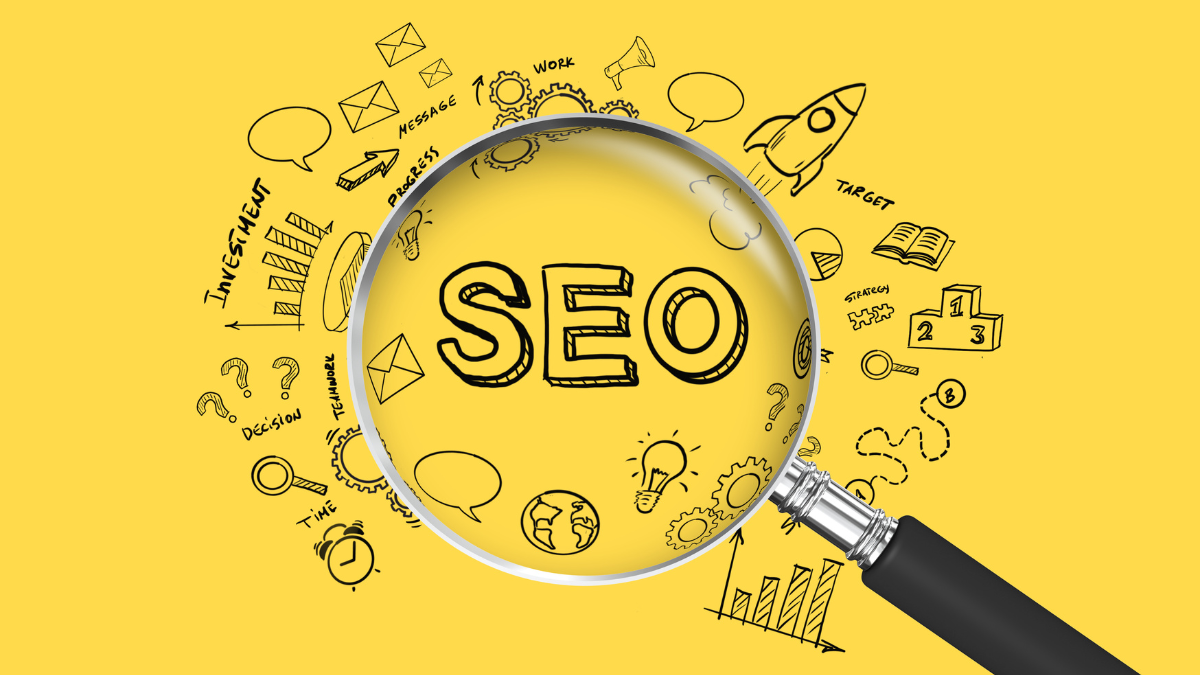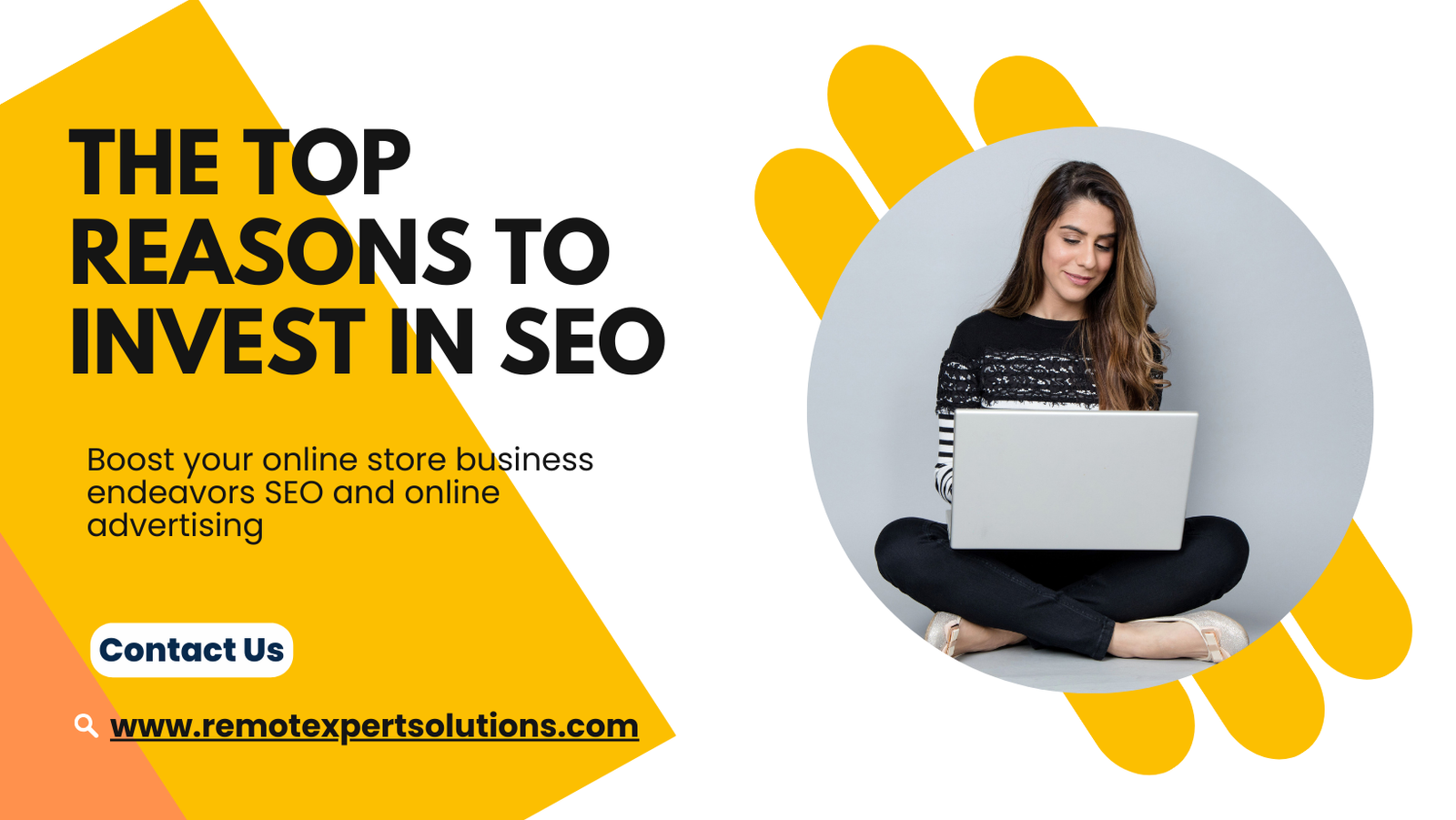In today’s digital world, it’s natural to wonder if SEO is worth the time and money. With so many ways to market your business, why should you choose Search Engine Optimization? As an SEO expert, let me walk you through exactly why SEO is an investment you won’t regret.
Essential Takeaways
- SEO Drives Long-Term Traffic and Visibility: Unlike paid ads, SEO brings consistent, organic traffic over time, making it a cost-effective way to reach potential customers.
- Builds Brand Authority and Trust: Ranking higher in search results establishes credibility, as users tend to trust businesses that appear at the top.Enhances User Experience:
- SEO improvements like faster loading times, mobile optimization, and easy navigation make your website more enjoyable for visitors, which helps with engagement.
- Keeps Your Business Competitive: Investing in SEO ensures you stay visible in search results, allowing you to compete effectively—even with larger businesses.
SEO Is Trackable and Adaptable: With tools like Google Analytics, SEO efforts are measurable, and strategies can be adjusted based on performance, providing clear insight into ROI.
Ready to learn why SEO matters and how it can elevate your brand’s online presence? Let’s break down the key elements.
What Is SEO and Why Does It Matter?
SEO Explained in Simple Terms
At its core, Search Engine Optimization is about making your website visible on search engines like Google. When people search for products, services, or information online, SEO is what helps your site appear at the top of those search results. By optimizing your website with relevant keywords, creating valuable content, and improving the site’s structure, you make it easier for search engines to recognize and rank your site.
Why SEO Matters in Today’s Digital Landscape
Every day, people use search engines to find solutions, products, and services. Think about how often you Google something before making a purchase or decision. If your business isn’t showing up in these searches, you’re missing out on potential customers who are ready to engage. SEO is about getting in front of those people, and when done well, it creates a steady stream of visitors to your site without constantly paying for ads.
The Top Reasons to Invest in SEO
Increased Organic Traffic
One of the biggest benefits of SEO is that it brings in organic (or “free”) traffic. When your site ranks higher in search results, you naturally get more clicks and visitors from people searching for what you offer. Unlike paid ads that stop working as soon as you pause them, SEO brings in ongoing traffic once you’re ranking well. It’s a long-term strategy that keeps paying off.
Long-Term, Cost-Effective Marketing Strategy
SEO isn’t about quick results; it’s a marathon, not a sprint. But here’s the great part: once your site is optimized and starts ranking well, you get consistent results without a constant investment. Compare that to paid ads, which require continuous spending to drive traffic. With SEO, the work you do now can benefit you months or even years down the road.
Building Brand Authority and Trust
When your website appears at the top of search results, it sends a strong message to potential customers. It signals that your brand is trustworthy and relevant. Many users trust Google’s top results, so ranking high helps build your brand’s credibility. A well-optimized website also provides useful content, which shows customers that you’re an authority in your industry.
Better User Experience and Engagement
SEO isn’t just about keywords and rankings; it’s also about making your website user-friendly. Search engines like Google reward sites that are fast, mobile-friendly, and easy to navigate. These factors improve the experience for your visitors, making them more likely to stay on your site and explore. A positive user experience is not only good for SEO but also for keeping your customers engaged.
Staying Competitive in Your Industry
If your competitors are investing in SEO and you’re not, there’s a good chance they’re capturing leads and sales you’re missing out on. SEO helps level the playing field, especially for smaller businesses looking to compete with larger companies. By optimizing your website, you’re positioning yourself to attract the same customers your competitors are targeting.
How SEO Works: Key Elements That Drive Results
Keyword Research: Finding What Your Audience Is Searching For
Keyword research is the backbone of any SEO strategy. It’s about understanding what words and phrases people use to find products or services like yours. When you know which keywords are most relevant, you can tailor your website’s content to match what potential customers are looking for. For example, if you’re a local bakery, optimizing for “best bakery near me” can help people find you easily.
On-Page SEO: Optimizing Content and Structure
On-page SEO is about making each page on your website relevant and easy to understand for both search engines and users. This includes optimizing titles, headers, meta descriptions, and images. It’s also about creating valuable content that answers questions or solves problems for your audience. When done right, on-page SEO helps your site rank better and improves user engagement.
Technical SEO: Enhancing Site Speed and Performance
Technical SEO involves optimizing your website’s backend structure, like improving load speed, ensuring mobile-friendliness, and using secure HTTPS. Think of it as the foundation of your SEO efforts; without a strong foundation, the other SEO elements won’t be as effective. Fast, well-structured websites not only rank better but also offer a smoother experience for visitors.
Off-Page SEO: Building Authority Through Backlinks
Off-page SEO is about building your website’s authority by earning backlinks from other reputable sites. When other sites link to your content, it tells search engines that your site is trustworthy and valuable. Quality backlinks are a signal to Google that you’re an authority in your field, which can help boost your rankings.
Measuring the ROI of SEO: How to Track Success
Key Metrics to Track for SEO Success
To understand if your SEO efforts are working, track metrics like organic traffic, keyword rankings, and conversion rates. Organic traffic shows how many people are finding your site through search engines. Keyword rankings reveal where you stand for specific searches, and conversion rates tell you how many visitors are turning into leads or customers.
How Long It Takes to See Results from SEO
SEO is a long-term investment. While you might see some improvements within a few months, significant results often take 6-12 months. The key is to stay consistent with your SEO efforts. The results are worth the wait, as SEO helps build a sustainable stream of traffic and leads over time.
Final Thoughts: Why SEO Is a Smart Investment
Investing in SEO is about positioning your business for long-term success. It’s a strategy that keeps bringing in leads and building your brand authority, all while improving your website’s user experience. If you’re looking to grow your online presence, SEO is a powerful, cost-effective solution that provides lasting benefits.
If you’re considering SEO, think of it as building the foundation of your online presence. Investing in SEO now will set you up for growth and help you reach customers actively looking for what you offer. Whether you choose to do it yourself or work with an SEO expert, starting with a solid SEO strategy can transform your business’s visibility and impact online.

FAQs
How long does it take to see results from SEO?
SEO is a long-term strategy, and while some improvements may be noticeable within a few months, significant results often take 6 to 12 months. Factors like competition, keyword difficulty, and website quality can affect the timeline.
Can I do SEO on my own, or do I need to hire an expert?
You can start SEO on your own with basic research and by using tools like Google Analytics and Google Search Console. However, for more advanced strategies and faster results, hiring an SEO expert can make a big difference.
What is the difference between SEO and paid advertising?
SEO focuses on increasing organic (free) traffic by improving website visibility in search results, while paid advertising requires ongoing costs for each click or impression. SEO provides long-term benefits, while paid ads offer immediate but temporary traffic.
How often should I update my SEO strategy?
It’s a good idea to review and adjust your SEO strategy every few months. Search algorithms change regularly, and updating your content, keywords, and backlinks can help keep your site competitive.
What are the most important SEO factors to focus on?
Key SEO factors include high-quality content, keyword optimization, website speed, mobile-friendliness, and building backlinks. Focusing on these elements helps improve your rankings and user experience.
Is local SEO important for my business?
If your business serves specific areas or has a physical location, local SEO is essential. It helps your website appear in local search results, making it easier for customers in your area to find you.
What tools can help me with SEO?
Popular SEO tools include Google Analytics, Google Search Console, Ahrefs, SEMrush, and Moz. These tools help with keyword research, tracking rankings, analyzing website performance, and more.






